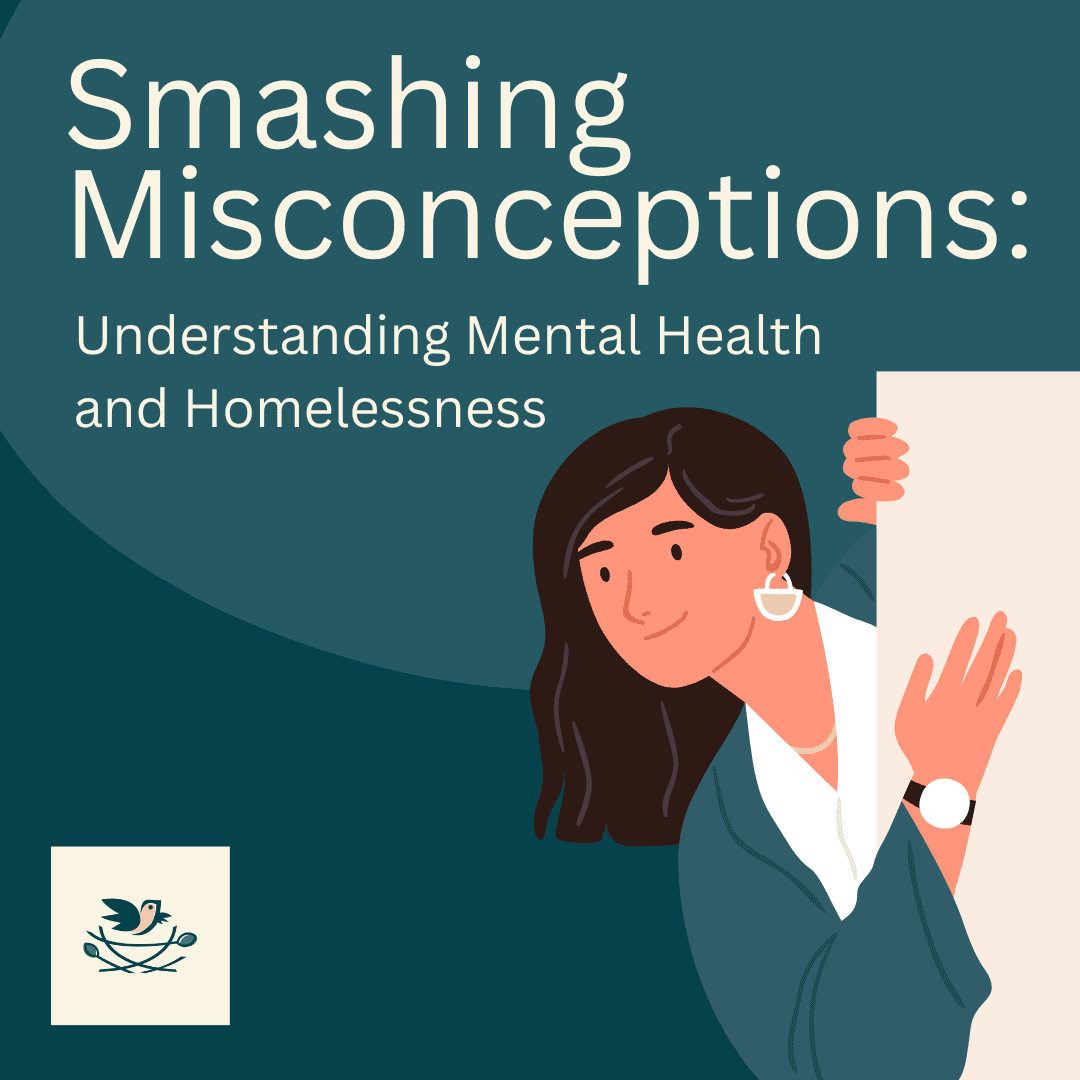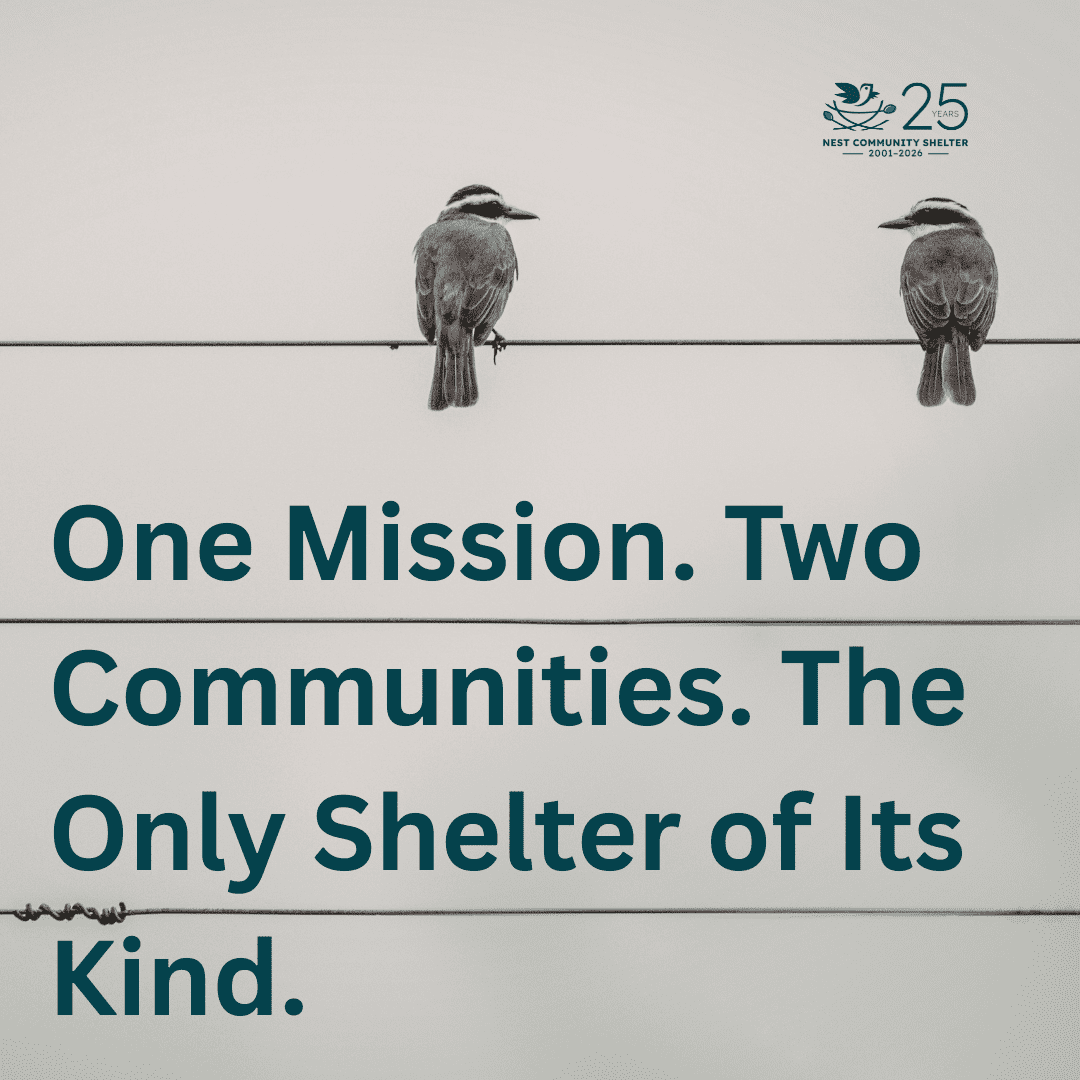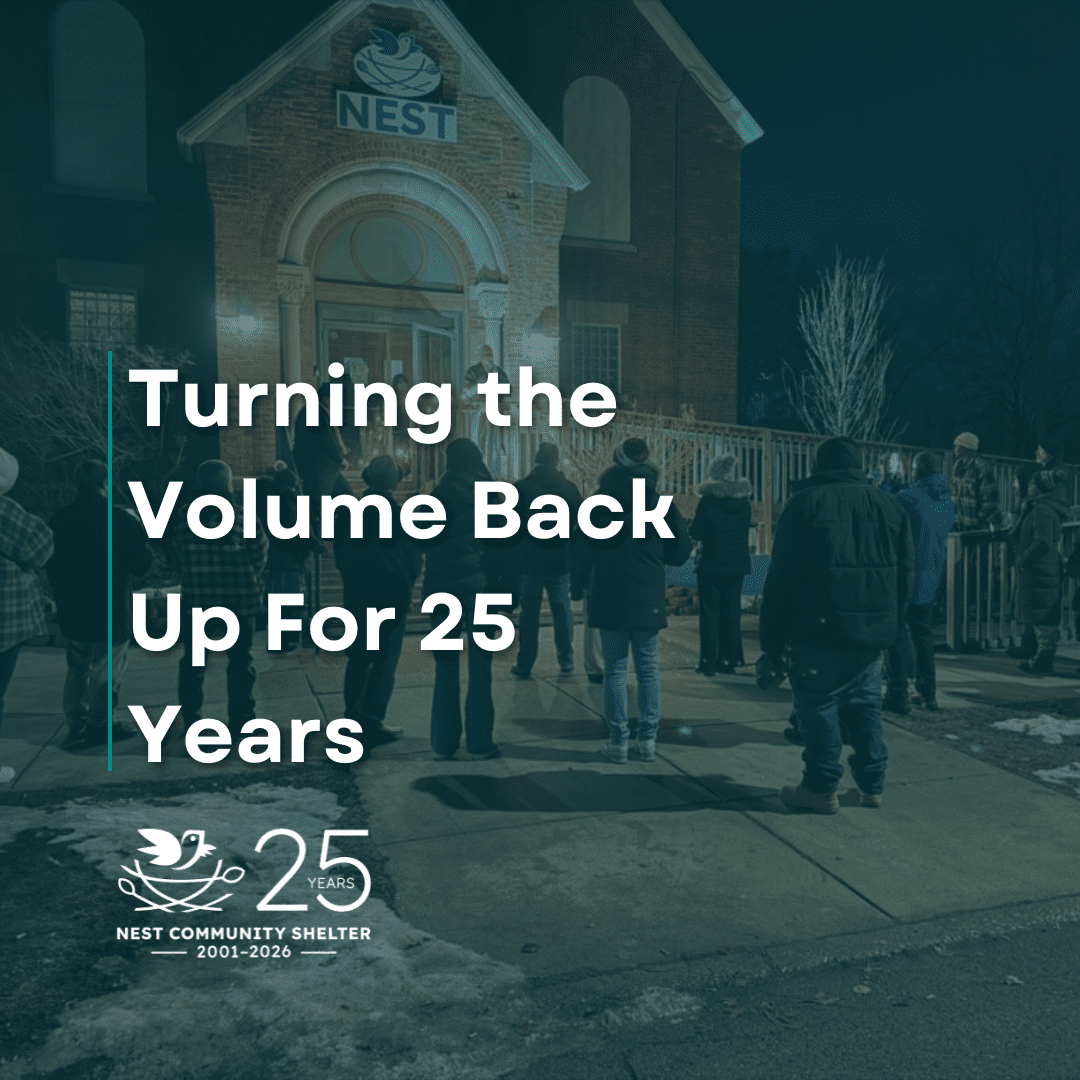
At Nest Community Shelter, we’ve been working to address common misconceptions about homelessness through our blog series. Today, we want to tackle a stereotype we hear all too often: the idea that homelessness and mental illness always go hand-in-hand. This seems to be one of the most pervasive misconceptions about homelessness.
The Truth About Mental Health and Homelessness
If you look at individuals who are betrayed in the media, all too often, they’re portrayed as experiencing mental illness. We know that homelessness carries a stigma, and when combined with mental health issues, this can create a truly ugly situation for all involved. The misconception that all who experience homelessness must be simultaneously experiencing mental health issues is simply false. The truth is that for many, homelessness came about through a few unfortunate decisions, and in some cases, those decisions were not the fault of the individual.
If we examine what the research reveals, this will illustrate what we know to be true as a service provider for those experiencing homelessness. According to the National Alliance to End Homelessness, about 18.4% of people experiencing homelessness have a serious mental illness. Compare that to the general population, where about 6% of people have a serious mental illness. While this number is higher, it also means that more than 80% of people without homes do not have a serious mental illness.
The National Alliance for Mental Illness tells us that about 1 in 5 adults (roughly 20%) in the general population experiences some form of mental illness each year. This shows us something important: mental health challenges are common throughout our society, not just among people experiencing homelessness.
Which Comes First?
When someone is experiencing both homelessness and struggling with mental health issues, it’s not always clear which came first. Sometimes, mental health challenges can make it harder to maintain employment or housing. But just as often, the extreme stress and trauma of becoming homeless can trigger anxiety, depression, and other mental health issues. Regardless of how an individual found themselves unhoused, the mental strain of experiencing homelessness is profound.
The Real Causes of Homelessness
We find the most common causes of experiencing homelessness to be:
- Housing costs that far outpace wages. Right here in our community, rent has increased steadily year after year pricing many out of the rental market.
- Job loss or medical bankruptcy. One serious illness can wipe out savings and leave families with nowhere to turn.
- Domestic violence, forcing people to choose between abuse and homelessness.
- Inadequate safety nets that let people fall through the cracks.
- Mental health can play a role, but it’s rarely the only or even the primary factor for experiencing homelessness.
Why This Matters
When it assumed that everyone without a home is experiencing a mental health crisis, the real story is missed. People are complex and so are the reasons that people experience homelessness. So when society dismisses an individual experiencing homelessness as simply mentally unwell, this creates more stigma around both homelessness and mental health and dehumanizes individuals. This mindset, while cruel, also fails to see that homelessness could happen to almost anyone given the right circumstances.
We’ve worked with individuals who never imagined they’d experience homelessness. Most stories rarely involve mental illness – they involve evictions, job losses, medical bills, and a housing market that simply doesn’t work for working people.
Moving Forward Together
For some this misconception is another way to see individuals explaining homelessness as “other” and not as a human being. At the end of the day all of our guests are our neighbors. The stigma that all experiencing homelessness are also experiencing poor mental health is simply wrong. This is like making the assumption that all housed individuals are mentally well, and is simply untrue. At Nest Community Shelter, we approach each guest regardless of mental health issues with compassion, kindness and understanding. If you’d like to learn more about mental health and homelessness we encourage you to look at our blog post series from last year on this topic. Click any of the blog titles below to read the posts:
The Trauma of Homelessness and its Impact on Mental Health
Breaking the Chains: Unraveling the Stigma of Mental Illness and Homelessness
The Devastating Link Between Economic Instability and Homelessness: A Silent Mental Health Crisis
The Unhoused Population and Mental Illness: A Complex Web of Issues





